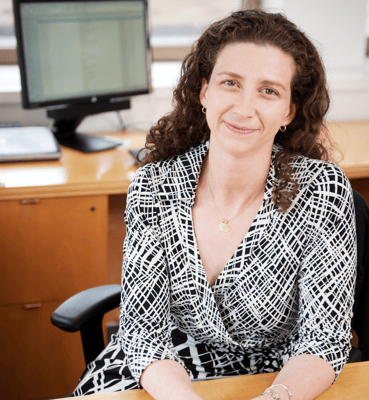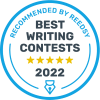Novel writing is about creating stories and characters and finding new ways to excite your readers. But it is also about editing, developing your ideas, and reworking your writing to ensure that you are presenting your narrative in the most powerful way.
The Guest Judge for our Novel Writing Competition, Julie Strauss-Gabel, President and Publisher of Dutton Books for Young Readers, comments on the importance of flexibility when drafting and reviewing your work. “Expect nothing to happen according to plan and get comfortable with the discomfort,” she says. “Know you have nothing to lose by shifting tactics or trying out an idea. Experiment.”
Read on to learn about her career, her book editing process, and her advice for young writers setting out to write their novels.

You’re the editor of over 20 New York Times bestsellers, including A Fault in Our Stars and the Matched series. Did you always want to be an editor, and were you always drawn to the Young Adult (YA) genre? What path did you take to end up where you are today?
In hindsight it seems obvious, though publishing didn’t click as a career path until I was out of graduate school. But a focus on kids and YA books was always clear. My first job in publishing wasn’t even on the editorial side, but it was in kids’ books. After about two years I was able to shift into editorial and I’ve been learning and growing my list ever since.
You’ve received credit from the media (and John Green himself!) for being instrumental in shaping A Fault in Our Stars into the huge success that it was. What would you say is the role of the editor in the creative process? When you’re faced with an excerpt that needs significant revision, how do you help coax out the writer’s talent?
Every writer is different, every path is different, every project is different. But one constant of my editorial approach is that I ask questions—a lot of questions. I’ve never been an editor who rewrites and I rarely touch a manuscript at the sentence level until it’s very close to its final form and the key developmental issues have been resolved. Some of the best surprises and most remarkable developments happen in revision as writers find their own way to the answers. My goal is to find the right questions to put a manuscript on the path to its greatest potential.
You’ve said that “learning to trust my gut… is a huge part of being an editor and a huge part of being a publisher.” What is your advice for young reviewers who are still learning to trust their gut?
Voice and the project’s ambition are always going to be primary to me. Taste plays a big role, but it’s also about developing an understanding of the kind of work—and aspirations for the work—that I can partner with to success. It takes practice and time, and trial and error is an inescapable aspect of that. Big challenges, risk taking, problem solving, and failing are big pieces of developing a publishing toolbox.
What are the most important things for a writer to think about as they sit down to work on a novel? What is a common mistake that you see from writers approaching this genre?
Expect nothing to happen according to plan and get comfortable with the discomfort. Know you have nothing to lose by shifting tactics or trying out an idea. Experiment. Everything is saved, you can always go back. And sometimes it’s the right choice to step away, or even walk away, from a project.
Pay attention to your relationship with outside feedback. Some people thrive with continuous input, others might need to keep the project close for a long time. Learn how to receive feedback, and, better, learn how to best use that feedback to thrive.
We’re asking young writers to submit a 600-1,000 word excerpt from their novel. What are you looking for in a winning excerpt?
A distinct voice. Intentional and inventive choices in your sentence and story structure that show a spark and signal to me there are good things ahead. I’m looking for what feels special and unique about your work that demands to be shared and adds to the conversation. Surprise me. Avoid tropes.
About the Guest Judge: Julie Strauss-Gabel is the President and Publisher of Dutton Books for Young Readers, an imprint of the Penguin Young Readers Group/Penguin Random House. Julie works with authors including Ally Condie (Matched trilogy), Adam Gidwitz (The Grimm trilogy, The Inquisitor’s Tale), John Green (The Fault in Our Stars, Turtles All the Way Down, The Anthropocene Reviewed), John Grisham (Theodore Boone series), Nina LaCour (We Are Okay), Stephanie Perkins (Anna and the French Kiss series, There’s Someone Inside Your House), Ransom Riggs (Miss Peregrine’s Peculiar Children series), and Lauren Wolk (Wolf Hollow, Echo Mountain). Honors her books have received include the Printz Medal, the Printz Honor, the Newbery Honor, the Scott O’Dell Award for Historical Fiction, the Edgar Award, the Boston Globe-Horn Book Award, and the Sydney Taylor Book Award.

Our Novel Writing Competition was selected as one of Reedsy’s ‘Best Writing Contests of 2022’!





